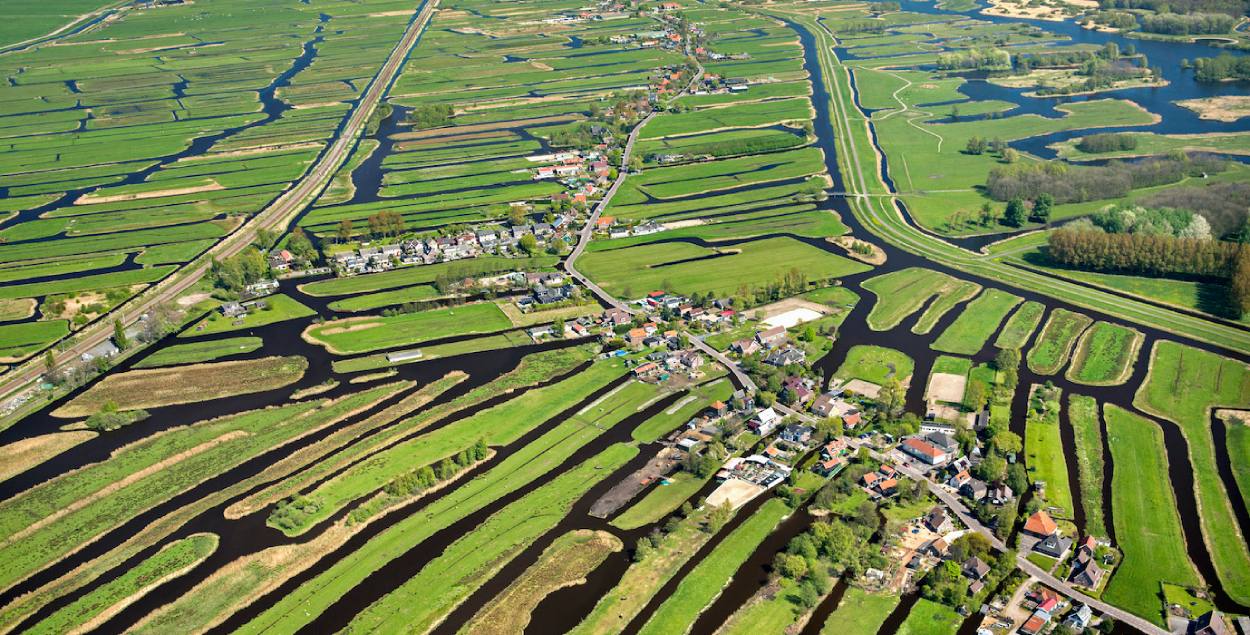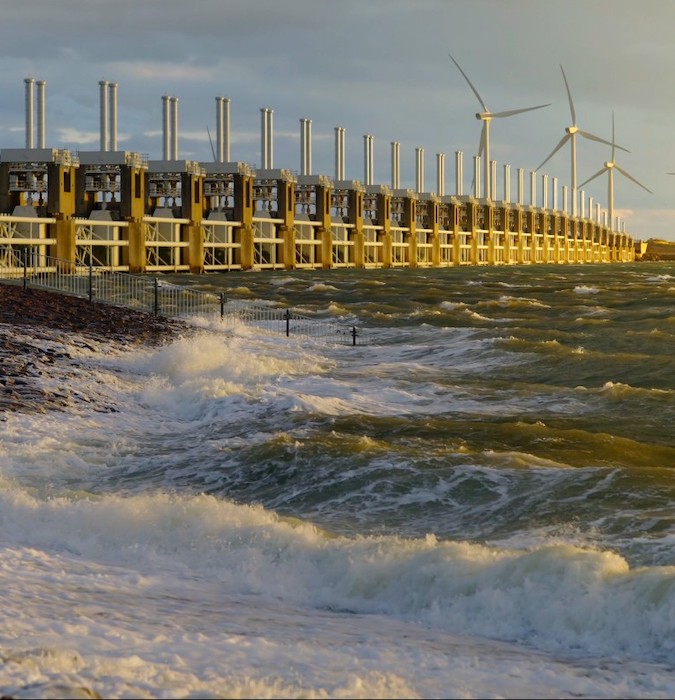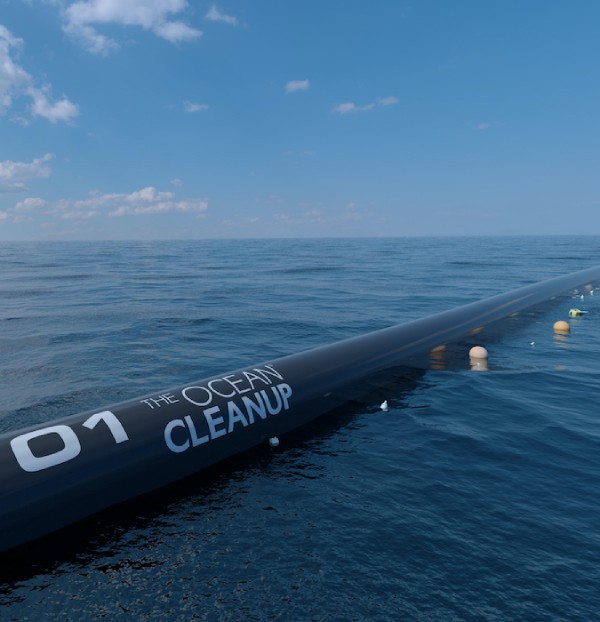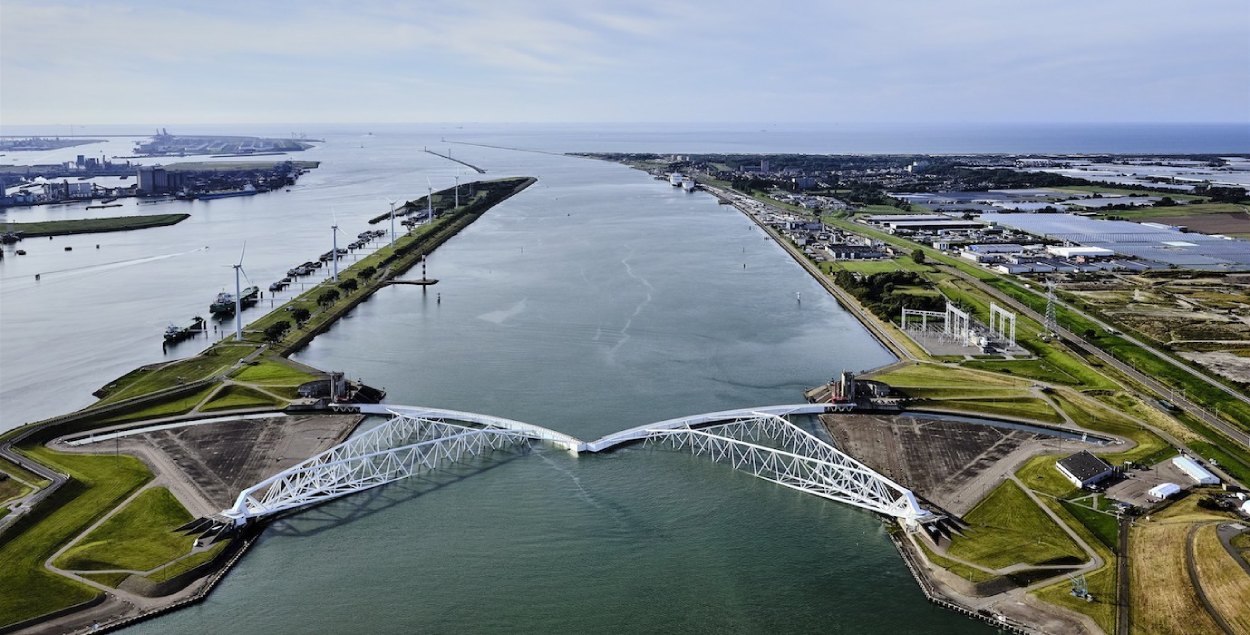Water
Quickly go to
- The Dutch maritime sector
- The search for sustainable solutions
- Eco-engineering
- Water safety, dikes & liveable delta
- Testing is key
- Join the Dutch water technology sector

The Dutch delta and maritime sector sets challenges, develops cutting-edge solutions and shares best practices across the world. This inspires, helps and encourages stakeholders from maritime industries everywhere to develop cleaner, more innovative and more advanced maritime technologies. Here in the Netherlands, organisations and institutes, such as TNO and Deltares, work closely together to ensure the continuous development of knowledge in the delta and maritime sector. And they’re backed by world-leading maritime companies like Boskalis, Royal IHC , Van Oord and Damen Shipyards .
For problems in relation to the quantity and quality of our surface water and the protection against floods, society needs a sustainable water-system management solution. We believe that human activity must take place in harmony with the oceans and aquatic ecosystems. The sustainable use of our oceans will contribute to economic growth, improved livelihoods and employment. However, unlocking the oceans’ full potential can only be achieved by simultaneously preserving their health. We must address the ever-increasing levels of carbon emissions, climate change, pollution, and overfishing right now, while navigating towards a sustainable ‘blue economy’.
That’s why the Dutch delta technology sector has chosen to cluster knowledge development and innovations into a few different themes: eco-engineering, water safety, smart dikes, and liveable delta. Below we’ll elaborate on each topic.


When talking about eco-engineering, we’re referring to the achievement of both economic and nature-related goals. In recent years, the Netherlands has successfully developed this concept within the 'Building with Nature' innovation programme. Fast forward to today and the concept has already made it possible for the hydraulic engineering sector to remain competitive in the international market. The main ambition is to see the concept become globally accepted, applied, and developed further. In the meantime, knowledge institutions such as the European Centre of Excellence for Sustainable Water Technology (Wetsus), situated in Leeuwarden, continue to carry out a lot of research in this area.
Water safety stands for integrated, sensible and risk-based protection against high water. Attempts are made to obtain optimal safety at the lowest cost by prevention, sustainable spatial planning, and sound disaster management. The ‘New Flood Control 2100’ innovation programme plays a vital role within this theme.
Smart dikes are on the agenda of ‘The Digital Delta’ and ‘Energy Dikes’ innovation programmes. These programmes are all about integrating data, models, algorithms, tools and applications. Another focus lies in finding new ways of generating energy. All this information is made available to the entire sector. The national infrastructure body Rijkswaterstaat and the water authorities are major buyers and are involved in fleshing out the programmes.
Liveable delta is the theme of the ‘Sustainable Delta Cities’ and ‘Living with Salt’ innovation programmes. Having such deep knowledge of the technical requirements for urban delta areas, in regard to water safety, climate change and sustainable environmental and economic developments, means our country has a unique position as an innovator. And that’s across the entire chain, from fundamental understanding to urban development.

The coastal nourishment and land reclamation projects of the Sand Motor and Maasvlakte II showcase innovative Dutch strength. That’s why other countries call on our knowledge and technology, such as when we advised on making New Orleans ‘waterproof’ and aiding the build of a storm surge barrier in St Petersburg. All of our knowledge is derived from a great deal of testing, which is part of our constant development process.
Off the coast of The Hague, just outside the port of Scheveningen, the Municipality of The Hague, KPN, TU Delft, TNO, Sailing Innovation Center, Svašek Hydraulics, and the Watersportverbond are working together on an advanced test area of 10 x 10 nautical miles. The exceptional environmental factors of water, wind and currents make this the 'smartest part of the North Sea' and a truly unique spot in the world. Data collection, transmission and access are major challenges that need to be faced. Testing findings from the laboratory in practice is essential, and we will continue to do so.